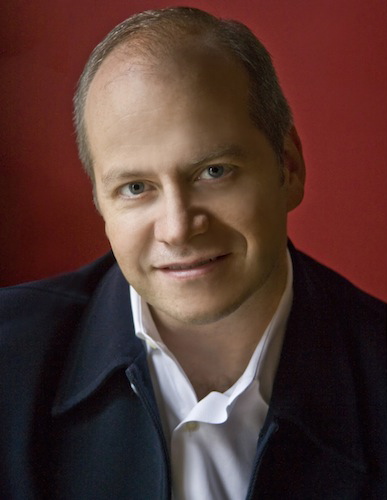Heaven-storming drama and grace under pressure with HGO’s Verdi Requiem

Patrick Summers conducted Verdi’s Requiem Friday night at Houston Grand Opera. Photo: Christian Steiner
It might be the theater’s first commandment: The show must go on. No matter what happens onstage, forge ahead.
In the midst of a vigorous, fervently sung performance of Verdi’s Requiem by Houston Grand Opera, soloist Sasha Cooke faced the test of living up to the rule.
No one announced before Friday’s concert that the mezzo-soprano was performing despite illness. Nor did she sound shaky to begin with: she brought the opening sections — including the mezzo’s big solo, “Liber scriptus” — much the same warmth and lyrical poise she did when she performed the Requiem with the Houston Symphony in 2015.
Yet soon after Cooke and soprano Angela Meade began their “Recordare” duet, Cooke seemed to cough, and she left a hand on her chest. A few moments later, she stepped hurriedly toward the wings, vomiting before getting there. I include that detail only to illustrate how notable it was when she returned to the stage moments later— conductor Patrick Summers and company had continued undaunted — and finished the duet.
Cooke left again, amid the audience’s applause, to compose herself during the next sections, which didn’t involve her. Then she returned to intone the lamenting melody that opens the “Lacrimosa.” She treaded lightly, but the performance was able to go on — though she later had to make another brief exit. What a heartening example of artistic grace under pressure.
Everyone else proceeded without missing the proverbial beat. Meade, in her HGO debut, boasted the most imposing voice of the solo quartet — full and rich, but also capable of soaring through the Requiem’s most ethereal moments. Thanks to her, Verdi’s outcries surged and his melodies flowed out generously. She gave a gutsy impact to the plea for deliverance that opens the “Libera me.” Yet in the a cappella section that followed, Meade’s voice floated heavenward in a luminous pianissimo.
Tenor Alexey Dolgov’s ringing, vibrant voice brought out the Requiem’s fervor, yet he also had sweetness for the most prayerful moments. Bass Peixin Chen’s sonorous, black tones were practically tailormade for the “Confutatis” and other visions of death’s abyss. But he, too, offered softer sounds when the music’s devoutness call for them.
The soloists and chorus got an extra boost from the setup in the Wortham Theater Center’s Brown Theater. Though HGO didn’t turn the Requiem into a theatrical production, it didn’t mount a typical concert performance, either. Summers and the HGO Orchestra occupied the pit. The soloists were at the proscenium, and the chorus’ risers began right behind them.
Obviously, that set up the voices for maximum impact, and the immediacy benefited big moments and quiet ones alike.
The HGO Chorus brought the Requiem’s opening plea not only grace and clarity, but moments of tenderness that made it for once sound like a farewell to loved ones rather than the beginning of a quasi-operatic showpiece. The group unleashed thunderclaps in the “Dies irae,” lent fullness to the “Lacrymosa” and brought vigor and brightness to the “Sanctus.” And when it backed up Meade in the finale’s a cappella section, its transparency complemented hers.
The HGO Orchestra generally played with zest and transparency, but its location in the pit sometime worked against it: The Requiem’s orchestra part didn’t register as vividly as it can when the orchestra is onstage. In the fire-and-brimstone “Dies irae,” the strings’ flourishes sounded dashing rather than fierce. The scampering violin bits that add such joy to the “Sanctus” were so faint that they probably wouldn’t have registered with anyone who didn’t know they were there. But the orchestra’s brasses rang out commandingly in the “Dies irae,” especially when trumpets in the balconies joined in for Verdi’s version of Judgment Day.
Why was HGO performing the Requiem rather than an opera? Blame the Super Bowl, played in Houston last Sunday. For a week before that, the Wortham Center was commandeered for ancillary National Football League events, effectively splitting up HGO’s traditional January-February repertory stint in the Brown Theater. The company used its first block of time for a short run of John Adams’ Nixon in China, and it’s devoting the second to the Requiem.
Maybe it’s a pity to lose an opera production, but the Requiem offered compensation: The HGO Chorus, whose precision and finesse often supply high points of the company’s productions, deserved the turn in the spotlight.
Verdi’s Requiem runs through Feb. 18. houstongrandopera.org; 713-228-6737